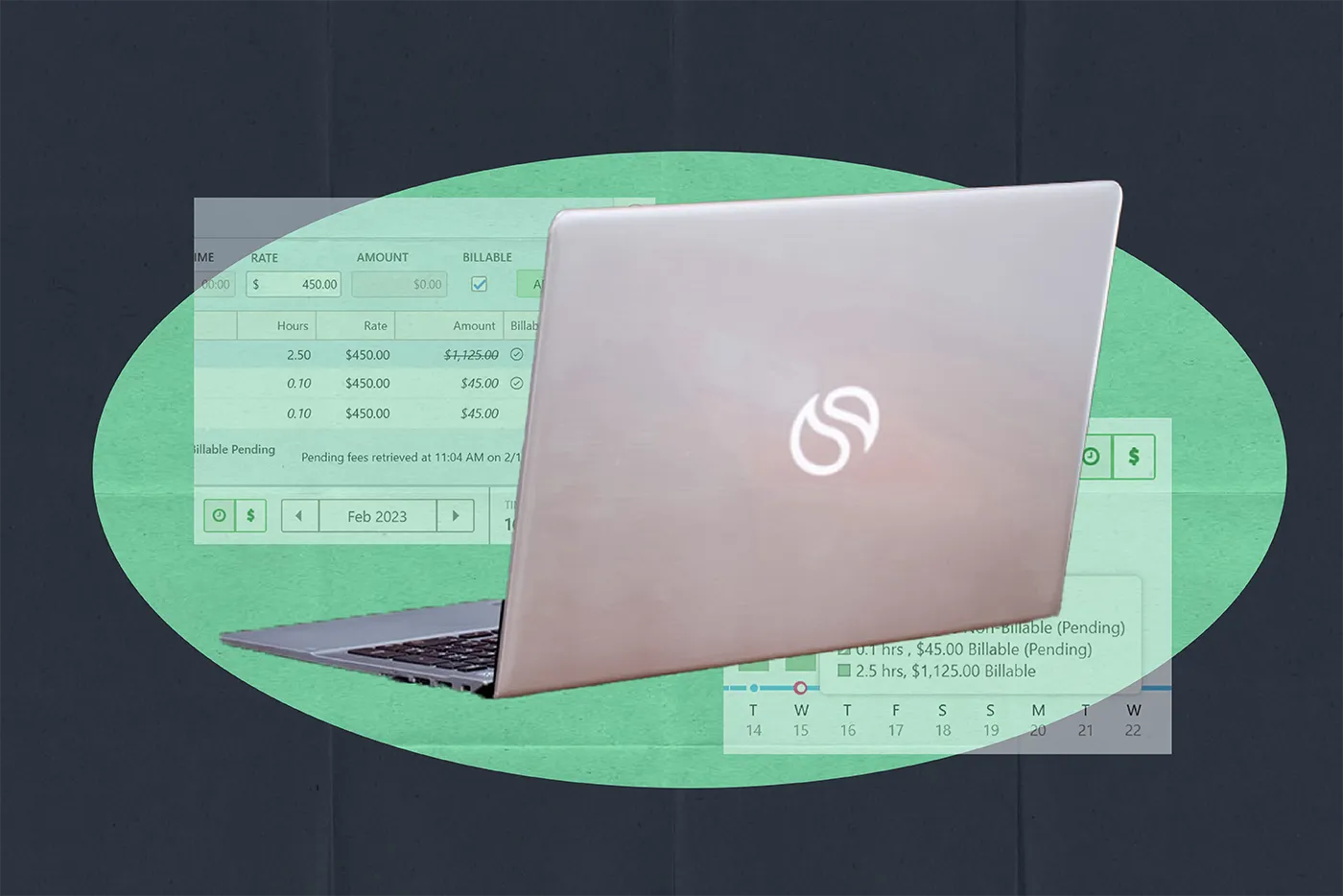How to Implement Lawyer Payment Plans At Your Law Firm
Written by
|
May 4, 2023
Written by Smokeball
|
May 4, 2023

Written by Jordan Turk
|
May 4, 2023

One of the biggest concerns for folks who are looking to hire a lawyer? The cost. To accommodate those fears, lawyer payment plans are becoming increasingly popular as a way of providing clients with a more affordable way to access legal services. However, implementing payment plans can be tricky for lawyers, who need reliable, steady income but also want to provide accessible and affordable legal services.
In this blog post, we will explore some tips for lawyers on how to successfully implement payment plans while still providing excellent legal support to their clients.
What are lawyer payment plans?
Lawyer payment plans are arrangements made between a lawyer and their client to spread out the cost of legal services over time rather than paying the full amount upfront. These plans can vary in structure and duration and may include payment in installments or a set monthly fee. They can be especially helpful for clients who are unable to pay the full amount in one installment or who have a limited budget.
Payment plans can also provide a sense of security and predictability for clients, as they know exactly what they will be paying for and when. However, it's important for both lawyers and clients to carefully consider the terms of the payment plan and ensure they're both comfortable with the arrangement before moving forward.
The benefits of accepting payment plans at your law firm
There are several benefits to accepting lawyer payment plans for both lawyers and clients. Here are a few of the main advantages:
Increases access to legal services
Payment plans can help make legal services more accessible to a wider range of clients who may not have the resources to pay for a retainer fee in one payment. When lawyers accept payment plans, it can help bridge the gap between those who can afford legal services and those who cannot, allowing more individuals to access the legal help they need.
Boosts legal client satisfaction
Payment plans can also lead to increased client satisfaction. When clients have the option to pay for legal services over time, they are less likely to be burdened with an unaffordable cost. This can reduce stress and improve their overall experience with the legal process, leading to a more positive relationship with the lawyer.
Enhances law firm cash flow
Accepting payment plans can also help lawyers enhance their cash flow. Rather than relying solely on large upfront payments from clients, lawyers can receive payments in installments, helping to smooth out their cash flow over time.
Builds legal client loyalty
By offering payment plans, lawyers can build loyalty with their clients. Clients who appreciate the flexibility of payment plans may be more likely to return for future legal services or refer others to the lawyer.
Mitigates unpaid attorney fees
Payment plans can help mitigate the risk of unpaid fees. By receiving payments over time, lawyers can reduce the likelihood of clients failing to pay the full amount owed. This can help reduce the need for debt collection efforts and associated costs.
Watch Now on Demand: Take Time Back with Smokeball Billing
Which types of law firms are most likely to offer payment plans?
Law firms that primarily serve individuals rather than corporations are more likely to offer payment plans. That's because individual clients may have limited resources and be unable to pay for legal services upfront, while corporations typically have the means to pay for legal services without the need for a payment plan.
Additionally, law firms that specialize in certain areas of law may be more likely to offer payment plans. For example, firms that focus on family law or immigration law may have clients who are facing financial hardship and may benefit from a payment plan. Criminal defense attorneys may also be more likely to offer a payment plan for imprisoned clients who don't have reliable income.
That being said, offering payment plans is ultimately up to the discretion of the individual law firm and their business model. Some law firms may choose not to offer payment plans at all, while others may offer them as a standard practice for all clients.
Download Now: Get Paid Faster with Automated Billing and Payments: a Step-by-Step Guide
How to implement lawyer payment plans at your firm
So how does a lawyer payment plan actually work? Let's jump into the step-by-step process of how to implement them at your law office.
Set clear terms and expectations
It is important to establish clear guidelines for how the payment plan will work. This includes the amount of each payment, the frequency of payments, and the length of the payment plan. Both the lawyer and the client should have a clear understanding of the terms before moving forward.
Determine eligibility
Before offering a payment plan, make sure your clients are eligible for one. This may include a review of the client's financial situation or credit history. It's important to ensure the client has the means to pay for legal services over time, and that they're a good candidate for a payment plan.
Use a written agreement
Be sure to establish the terms of your payment plans in writing. This can help avoid misunderstandings and ensure both parties are on the same page. The agreement should include the terms of the payment plan, any associated fees, and any consequences for missed payments.
Consider payment methods
Next, think about how you'll process payments, and which payment methods will be accepted. This may include checks, credit cards, or electronic payment methods. Be sure to choose payment methods that are convenient for both the lawyer and the client and are compatible with your firm's legal billing software.
Monitor payments
Once your payment plan is set up, monitor it throughout the case to ensure your client stays on track. A few friendly reminders can help your clients avoid missed payments and allow for early intervention if the client falls behind. Ongoing communication is key!
Be flexible
Finally, it is important to be flexible when implementing a payment plan. Life happens, and unexpected expenses or changes in circumstances can impact a client's ability to make payments. By being flexible and willing to work with the client, lawyers can build trust and loyalty with their clients.
Leverage technology when implementing lawyer payment plans
Software makes it a lot easier to manage multiple payment plans, check client balances, and accept recurring payments. Here are a few specific ways that technology can improve the process of managing payment plans:
Legal billing software
Smokeball's legal billing software makes it easy to set up payment plans, invoice clients, and review client balances to make sure they're all paid up. Plus, our legal billing tools pair with our time tracking software, so it's easy to automatically show clients what your team has been working on.
Online payment options
Smokeball's legal billing software integrates directly with LawPay to improve your cash flow compliantly and efficiently. For your clients, that means seeing and paying invoices online, setting up automatic payments if they choose. And for you, that means a better big-picture view of your firm's finances.
Trust and multi-trust accounting
Smokeball's trust accounting software helps your firm accurately separate trust accounts, safeguard transactions and keep paperwork organized for annual filing—even when your clients are on a payment plan.
Quickbooks integration
Our law firm billing software also integrates with one of the most popular accounting tools, QuickBooks Online, to form a robust accounting system and manage your firm’s general ledger. That means you can seamlessly track every client payment, even if they're spread out over time.
Lawyer payment plans: the bottom line
In conclusion, lawyer payment plans can be a valuable tool for increasing access to legal services, improving client satisfaction, and building loyalty with clients. By carefully considering the terms of the payment plan, establishing clear expectations, determining client eligibility, using a written agreement, monitoring payments, and being flexible, lawyers can successfully implement payment plans and provide quality legal services to a wider range of clients.
Building Your Legal Tech Stack: A Legal Technology Starter Guide
Read NowLearn more about Smokeball document management for law firms:
Book Your Free Demo
Ready to see how Smokeball client intake software helps you Run Your Best Firm? Schedule your free demo!









.webp)
.webp)





